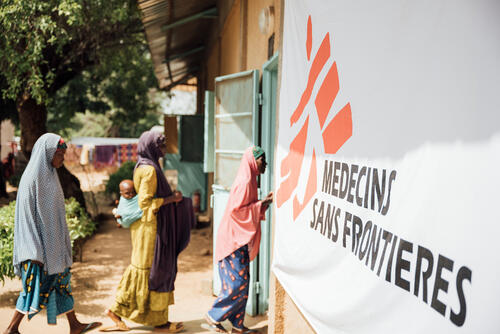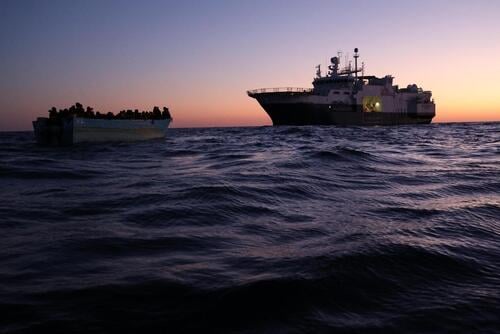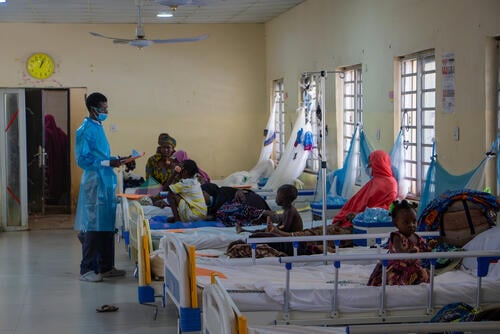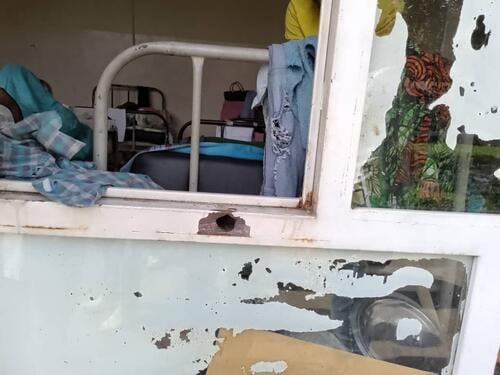As a result of the political situation in Niger since 26 July, regional organisations including the Economic Community of West African States (ECOWAS), the West African Economic and Monetary Union (UEMOA) and a number of bilateral and multilateral partners, imposed a package of sanctions on the country.
These sanctions are both targeted, as individuals are subjected to travel bans and asset freezes, and collective, with measures such as the closure of land and air borders and the suspension of regional trade and banking relations. These sanctions are affecting the country's economy and its people.
In a dire humanitarian context where every year the health system and partner organisations like Médecins Sans Frontières (MSF) provide treatment to some 400,000 severely malnourished children, these measures raise serious concerns. Head of MSF's operations in Niger, Moctar Daouda Abass, explains.
1. How have the sanctions affected people in Niger?
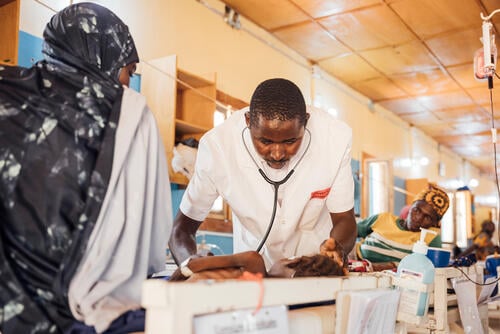
First of all, there are concerns about food prices because this is the agricultural lean season, which is when prices are usually already sky-high and many of the poorest families struggle to meet their basic needs. Part of the cereals consumed in Niger are imported from neighbouring countries like Nigeria, Benin, Togo and Ghana, while millet, beans and other foodstuffs are exported, primarily to Nigeria.
Truckloads of food and goods are blocked at the borders with Nigeria and Benin and the disruption to trade in the region can only make already high levels of food insecurity even worse, both in Niger and neighbouring countries. A total of 3.3 million people (13 per cent of Nigerien people) are suffering from acute food insecurity.
There are also problems with obtaining supplies of essential goods such as drugs and energy. Last year, 70 per cent of Niger’s electricity was purchased from Nigeria. The health system relies partially on electricity to keep hospitals functioning, ensure the cold chain for vaccines and operate equipment. Lots of hospitals have generators, but when they’re the sole source of energy, maintaining and obtaining fuel for them can be challenging.
A total of 3.3 million people are suffering from acute food insecurity.Moctar Daouda Abass, MSF head of operations in Niger
2. Are there shortages of drugs and therapeutic foods in Niger?
Working together with the Ministry of Health, we continue to do our utmost to keep medical activities going and address the most urgent needs in the capital city, as well as in Maradi, Zinder, Tahoua, Diffa, Agadez and Tillabéry Regions.
For the time being, we’re getting by with the supplies we have in the country, while several of our containers with drugs and other supplies are stuck in Benin.
In early August, Niger closed and then re-opened land borders with Burkina Faso, Mali and Algeria. At the beginning of the week, Niger’s airspace was declared open again to commercial flights. These developments may help us to find ways to restock supplies and renew our teams, whether they are international staff in Niger or Nigerien colleagues working with MSF in other countries.
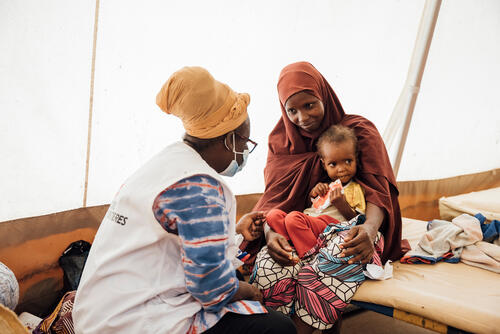
In view of a recent announcement restricting the movements and activities of humanitarian organisations inside the country, we also hope to be able to continue our vital medical activities, all the more so at this critical time, unhindered and in partnership with the Ministry of Health.
Now is the time when malnutrition and malaria are at their peak and there’s also widespread flooding and risks of outbreaks, so any disruptions to what is needed to treat these diseases would be disastrous.
UNICEF says that around 20 of their containers transporting equipment vital for vaccinating children are stuck in Beninhttps://reliefweb.int/report/niger/statement-unicef-representative-niger-stefano-savi-severe-impact-ongoing-crisis-millions-vulnerable-children on route to Niger and another 30 containing ready-to-use therapeutic foods and other provisions are still out at sea.
3. What is MSF calling for?
In general, measures intended to strangle a country’s economy – a total embargo being the most extreme example – penalise first and foremost its people, especially those who are already the most vulnerable.
It is urgent to break with this practice of collective punishment and ensure that the sanctions don’t make the situation even harder for people.
Niger has made significant, but extremely fragile, progress with fighting the principal causes of mortality, especially in infants, as this progress is in part due to the movement of goods, multilateral funding and large-scale delivery of ready-to-use therapeutic foods and other basic necessities.
It is our belief that preserving people’s extremely limited access to essential services is absolutely vital. It is urgent to break with this practice of collective punishment and ensure that the sanctions don’t make the situation even harder for people.
This is what the African Union’s Peace and Security Council reiterated in a statement calling for them to “minimise their disproportionate impact on the citizens of Niger”. Furthermore, the United Nations Under-Secretary-General for Humanitarian Affairs and numerous other aid organisations are appealing for the implementation of humanitarian exemptions.



